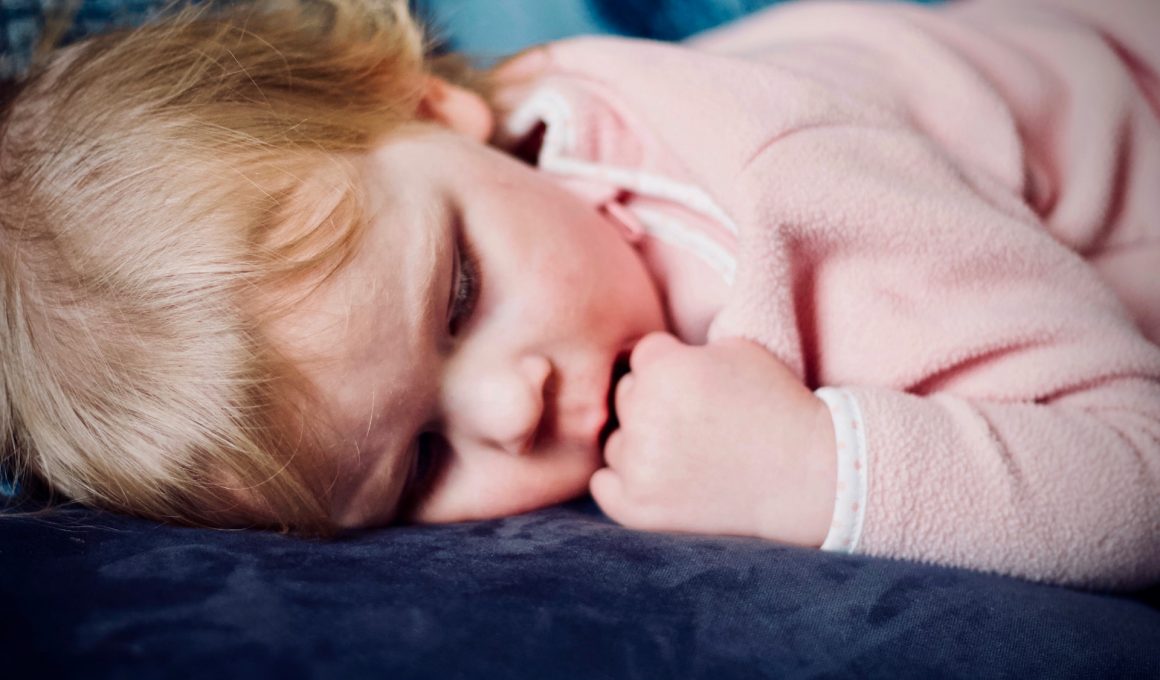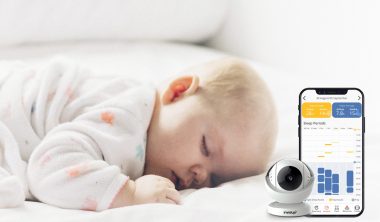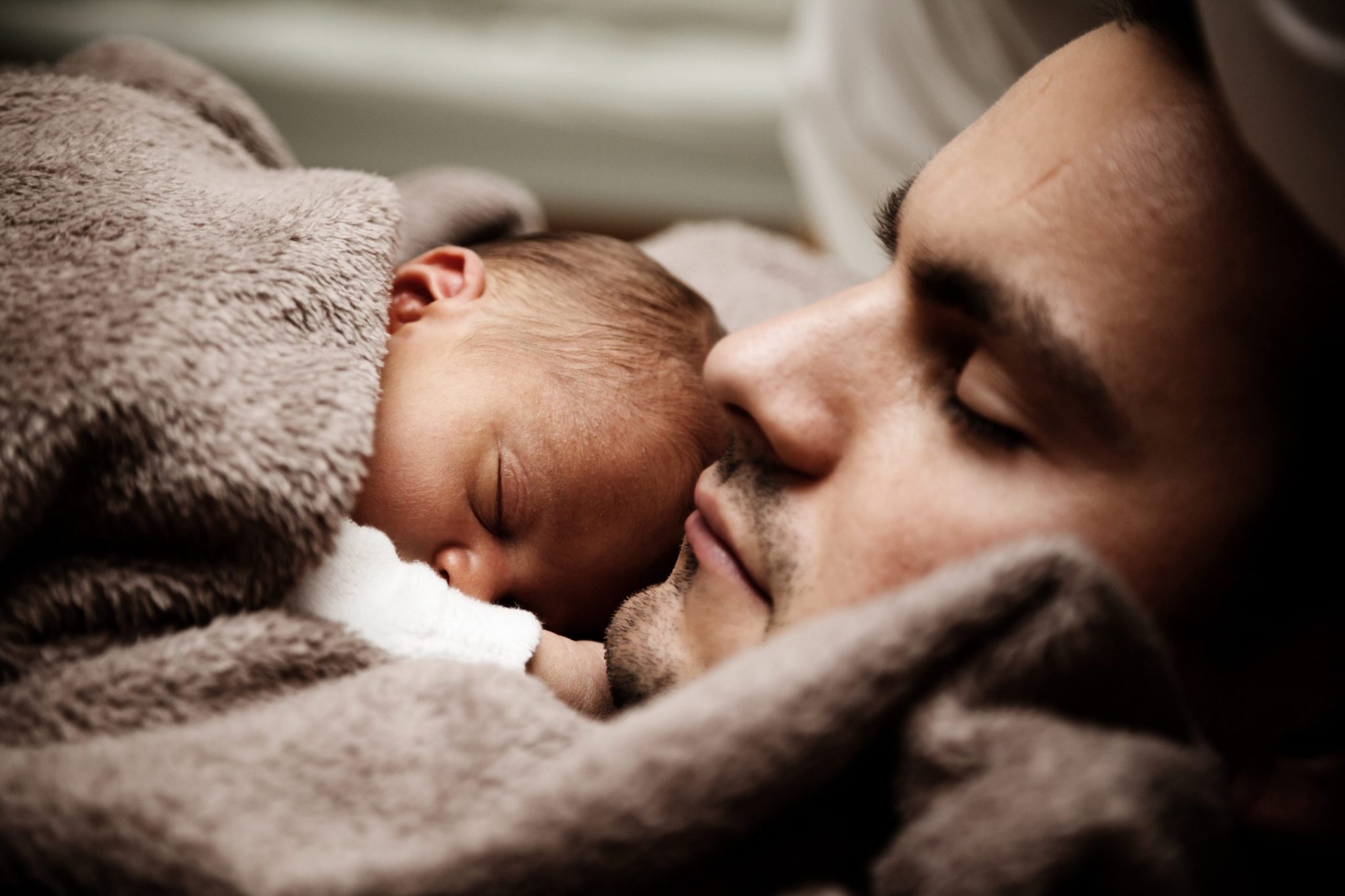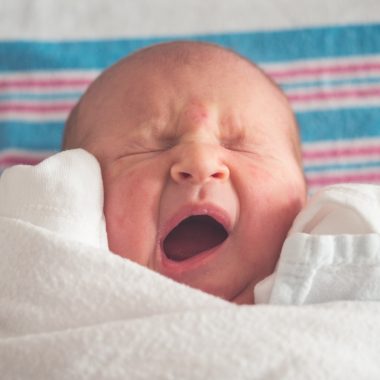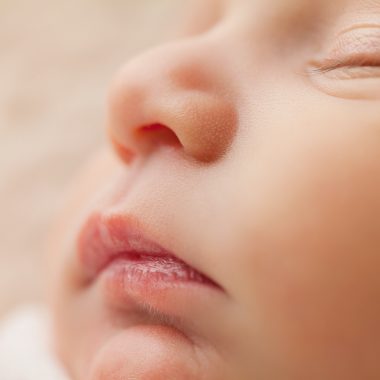Bringing up a child is a long term commitment that, at times, can get quite challenging. For parents who have children with “special needs,” this journey is often far more challenging.
One of the most important aspects of development is sleep. The majority of parents have to deal with sleep issues, either their own or their children’s. This is, usually hard to cope with since every child faces problems with sleep at one point or the other. The ease with which your child goes to sleep and stays asleep fluctuates as they grow older.
According to researchers, children with physical, psychological, or intellectual disorders experience far more problems with sleep than kids without “special needs” do. This article explores the relationship between sleep and special needs children.
The relationship between sleep disorders and learning, behavior, and family functioning makes it particularly important that children with special needs receive appropriate intervention for their sleep disorders. This is why understanding the reasons behind sleep issues is essential.
Autism spectrum disorder (ASD) and Down syndrome (DS) can affect children intellectually and developmentally. And sleep disorders are one of the most frequent comorbidities in children with such disorders.
In this article we mainly focus on the sleep disorders of children with autism spectrum disorder (ASD). But you will also learn quick facts about Down syndrome.
Researchers estimate that between 50% and 80% of children with ASD have difficulty with sleeping.
The biggest sleep problems among these children include:
- Difficulty falling asleep
- Inconsistent sleep routines
- Restlessness or poor sleep quality
- Waking early and waking frequently
We will search the causes behind why autistic children might struggle with sleep and how to help them get a good night’s rest in this article.
What causes sleep problems in autistic children?
Autism spectrum disorder (ASD) is a developmental disorder characterized by deficits in social communication and repetitive and stereotyped interests and behaviors.
Currently, one of the most burdensome complaints among parents of children with autism is disrupted sleep.
Sleep problems are so common in ASD that they are, at times, considered a phenotype marker.
Studies suggest that up to 50% – 80% of children with ASD may have sleep difficulties at some point in their childhood. For many, these sleep problems can be chronic.
For children with ASD, sleep problems typically begin to occur from around 30 months of age. The most common problems are less total time asleep and increased time to settle to sleep.
Although specialists assume that bedtime and daytime habits affect sleep habits of children with ASD, researchers aren’t exactly sure why they have problems with sleep. However, there are several theories behind why it occurs:
Social cues
A person’s circadian rhythm dictates when it’s time to sleep thanks to the typical cycle of day and night. But besides this, social cues are also effective in deciding sleep time.
For example a child may see their siblings getting ready for bed and decide that it’s time to sleep.
But in the case of children with ASD, social cues may not work. These children often have difficulty in communicating and they may fail to understand sleep cues.
Melatonin
This hormone normally helps a person regulate their sleep-wake cycle. The body needs an amino acid called tryptophan to make melatonin. But this amino acid is either higher or lower than normal in children with autism according to research. This imbalance contributes to the failure of releasing melatonin at appropriate times during the day.
Children with ASD might have high levels of melatonin during the day and lower levels at night. Hence, the irregular secretion of melatonin, which regulates sleep patterns, affects sleep adversely.
Increased sensitivity to external stimuli
Children with ASD have heightened levels of sensory sensitivity. Touch or sound may affect them intensely. For example most kids sleep soundly through events like opening their bedroom door. to check in on them. But a child with ASD might wake up abruptly.
Anxiety
Children with ASD experience high levels of anxiety at an higher rate than typically developing children. Increased anxiety or an inability to relax are possible conditions that can adversely affect sleep.
These factors are thought to be the basis of sleep problems in children with ASD. If you understand the underlying reason of your child’s sleep problems, it can be easier to work out the most appropriate way to solve the problems. The following are a few situations that contribute to sleep disturbances.
- Having difficulty settling, winding down and going to sleep.
- Waking repeatedly during the night, or having difficulty going back to sleep after waking up to go to the toilet.
- Neurological conditions such as epilepsy.
- Sensory differences, such as increased sensitivity to blue light from smart phones, laptops and other screens, or sensitivity to certain sounds or white noise, which may be upsetting or distracting and keep them awake.
- Problems caused by food allergies, which could cause gastrointestinal issues and discomfort, or increased sensitivity to caffeine or other stimulants, which can disturb sleep.
- Hypersomnia – sleeping too much. Increased exhaustion could be caused by the additional stress autistic people experience in social situations.
How do sleep problems affect daily life?
In a developing child, sleep serves multiple functions including, but not limited to, energy conservation, brain growth, memory consolidation, and cognition.
The body releases hormones during sleep that aid growth, build muscles, and repair cells and tissues. According to studies, childhood sleep deficiencies may be linked to future problems, such as a decrease in mental functioning that can begin as early as adolescence.
Increasing evidence also suggests that poor sleep contributes to major health problems, such as obesity. Sleep constitutes the basis of general health.
Research has also shown that, in children with ASD, there is a connection between lack of sleep and the following characteristics:
- Aggression
- Depression
- Hyperactivity
- Increased behavioral problems
- Irritability
- Poor learning and cognitive performance
Daytime behavior problems in children with ASD, such as elevated rates of anxiety and depression in older children and adults, are associated with sleep problems according to one approach. Moreover researchers point to the fact that throughout life, sleep problems can result in more severe ASD symptomology (higher rates of repetitive behaviors is an example to this) and gastrointestinal problems.
Studies following this approach, report individuals with ASD and sleep problems display more intellectual disabilities, inattention, hyperactivity, and restricted/repetitive behaviors when compared to individuals with ASD without sleep problems.
If your child isn’t sleeping, there’s a good chance you aren’t, either. Since children with ASD sleep less, parents of them have poorer sleep quality and sleep less.
One study found that over two-thirds of parents of children with autism reported their own sleep was disrupted due to their child’s sleep.
How do I know if my child has a sleep disorder?
If your child regularly has difficulty falling asleep or wakes up repeatedly throughout the night, it might be a sign of a sleep disorder. To know for sure, you should contact your child’s pediatrician. The doctor may refer you to a sleep specialist.
Keeping a sleep diary might be a good idea before contacting your doctor. With a sleep diary you can easily keep track of how much your child is sleeping and monitor their sleep habits.
In a sleep diary, you can include following points:
- How much your child is sleeping in total?
- When do they sleep every night and day?
- How long do they sleep?
- How many times do they wake up during the night?
- How do they sleep?
- How long does it take to fall asleep?
- Does your child snore?
- Does your child have any changes in breathing patterns?
- Does your child have any unusual movements?
- Does your child have any difficulty in breathing?
- Does your child have any changes in their behavior the following day?
Even better yet, you can use smart baby monitors such as Invidyo Smart Baby Cam to make things easier for you. Invidyo automatically tracks your baby’s sleep habits and patterns so you don’t have to do so manually.
Some of the ways that Invidyo’s automated sleep tracking can help include:
- Monitor your baby’s sleep duration
- Check for sleep disturbances
- Check how often and for how long your baby’s sleep is interrupted
- Use the accumulated data for your pediatrician check-ups
- Share your baby’s sleep patterns and habits with your partner or family members
- Easily detect sources of sleep disturbances to improve your baby’s sleep quality
Aside from automated sleep tracking, Invidyo’s Smart Baby Cam uses AI technology to provide you with many other important metrics including but not limited to Cough & Cry detection, Stranger Alerts, and daily summary videos.
Baby camera’s like Invidyo make it easier for parents to take care of their little one(s) especially if they have a baby with special needs.
FIND OUT MORE ABOUT INVIDYO SMART BABY CAM HERE!
How can I help my child sleep better?
All children, including autistic children, need enough good-quality sleep for growth, development and learning.
How long it takes children to get to sleep and settle back to sleep when they wake up in the night might depends on things like:
- What they do before they go to bed
- When they go to bed
- What they need to get to sleep
- Where they go to sleep
- What they do during the day
Before sleep medications, there are a number of life style changes that can improve sleep time and quality for children with ASD.
Below you will read some tips that can help your child sleep better:
Avoid caffeine, electronics and excitement before sleep
Stimulants such as caffeine and sugar affect sleep. Caffeine can be found in energy drinks, coffee, tea, chocolate and other fizzy drinks. Make sure your child avoids these stimulants well before bed.
Studies point to the fact that media exposure including television, video game devices and computers negatively affect sleep onset. Besides, exposure to violent media is particularly harmful but also especially before bed.
Set up a bedtime routine
A regular bedtime routine encourages good sleep patterns. Set the routine which fits your child the best. A short bath, reading, listening to music and then bed can be in your routine. The aim here is to help your child feel ready for sleep.
For older children the routine might include a quiet chat about the day, then some time alone relaxing before lights out.
Autistic children might need extra support to get used to a bedtime routine. Below you will read ideas:
- Give your child clear and consistent cues when it’s nearly bedtime. For example, 30 minutes before bedtime, start with some quiet activities like reading or drawing in the living room. Then 15 minutes before bedtime, let your child brush their teeth and go to the toilet.
- Use visual support aids showing your child’s bedtime routine. This way your child can understand the steps better. Have a short bath, put on pajamas, brush their teeth, get in the bed, read a book, turn out the lights and sleep are some examples.
- Put stickers on your visual support board to indicate when your child completes a step correctly.
- Gently praise your child for successfully completing steps in the routine.
- If your child gets upset or wakes up during the night, quietly and calmly put them back to bed. Settle them in and remind them of the sleep routine using words or pictures. You might need to do this many times.
Set regular and appropriate bedtimes
Regular and appropriate bedtimes can help your child get the sleep they need.
The first thing is to reveal the best time for your child to go to bed. You can do this by looking at when your child needs to get up, and how much sleep your child needs to stay well and alert during the day.
The next step is to move your child’s sleepy time towards their ideal bedtime. To start with, put your child to bed when they’re sleepy. This might mean that your child stays up later and starts their bedtime routine a bit later initially.
Once your child is falling asleep quickly, move the start time for the routine back by 15 minutes every 2 days. It might take a few weeks, but your child should start to feel sleepy earlier until they’re going to bed at the desired time.
Until your child is good at settling to sleep, try to keep the same bedtime at weekends and holidays.
Set up a safe, comfortable sleep environment
Be sure that your child’s sleep environment is quiet, dimly lit, and neither too hot nor too cold.
It is important that you remove objects that might stop your child from sleeping comfortably. A child’s bed should be empty of excessive toys. For example, if your child has a collection of toy cars in their bed, it might make it hard for them to get comfortable in bed.
- Help your child relax. You know your child the best. If they like being massaged, then give them a gentle back massage. You can also turn on some soft music of their choice.
- Shut down television, electronic devices like phones, video games, and other sources of stimulus at least an hour before bedtime.
- To prevent sensory distractions during the night, put heavy curtains on your child’s windows to block out the light, install thick carpeting, and make sure the door doesn’t creak. You can also make sure that the temperature of the room and choice of bedding fit your child’s sensory needs.
Get enough physical activity during the day
Encourage your child to be more active during the day. A family walk before dinner, walking daily in a park, jumping, and running can all make a difference. It really helps if your child can be active outside, because plenty of natural light during the day also helps with sleep.
Eat the right amount at the right time during the day
Eating and drinking habits are important. Because what you eat and drink alongside when you eat and drink affect a child’s ability to settle down.
A healthy breakfast gives a child’s body the required energy for the day. A light dinner that satisfies the child but does not leave them too full is ideal before going to bed.
Ask your pediatrician about melatonin
Pharmacological treatments for sleep problems in ASD most commonly include melatonin. But you should contact your pediatrician about using this supplement.
Melatonin may help normalize sleep-wake cycles in autistic children who have sleep issues, and research done so far finds that it’s safe and effective.
Sleep problems in children with Down syndrome
Around 50% of children with Down’s syndrome (DS) experience sleep issues. Babies with DS may find it harder to develop sleep patterns, get to sleep and stay asleep.
There can be multiple causes of sleep deprivation in children with Down syndrome. It is best to consult with your doctor first to discuss what is going on with your child.
Two common causes of sleep disturbances in children with Down syndrome are physical, breathing-related sleep problems (narrow upper airways, larger tongues and low muscle tone) and behavioral sleep problems.
The most common physical, breathing-related sleep problem is obstructive sleep apnea. According to a study by NIH, 31% of infants with Down syndrome have obstructive sleep apnea.
Obstructive sleep apnea (OSA) is a medical condition where a person’s normal breathing is disrupted during sleep because the walls of the throat relax and narrow or block the airway. If your baby is diagnosed with OSA, your doctor or sleep physician will talk to you about treatment options.
If your baby has other medical problems it can make developing good sleep routines less of a priority, especially if they spend more time in hospital early in their life. This can affect and disrupt their sleep routine when they are at home.
Some medications can also affect babies going to sleep and remaining asleep. The way babies and children with Down syndrome communicate and learn can affect their ability to develop good sleep habits.
Families, parents and carers of children with Down syndrome can also feel increased stress, which makes it harder to establish good sleeping patterns.
How can you help your baby with their sleep?
Basically good sleep habits or in other words sleep hygiene can improve your baby’s sleep issues.
Above we have shared some tips for helping children with ASD to sleep better. The same tips are mostly effectual for children with DS.
- A nightly routine at bedtime.
- A bedroom that is free of distractions (e.g. cut out any unwanted light or noise).
- Regular sleeping hours.
- Regular exercise and activities.
- Avoidance of caffeine and other stimulants in the evening.
- Avoidance of exercise in the evening.
- Not using a phone or iPad late at night.
References: sciencedirect.com, autism.org.uk, sleephealthfoundation.org.au, webmd.com, raisingchildren.net.au, pubmed.ncbi.nlm.nih.gov, nationwidechildrens.org, onlinelibrary.wiley.com, dsrf.org, childrens.health.qld.gov.au


